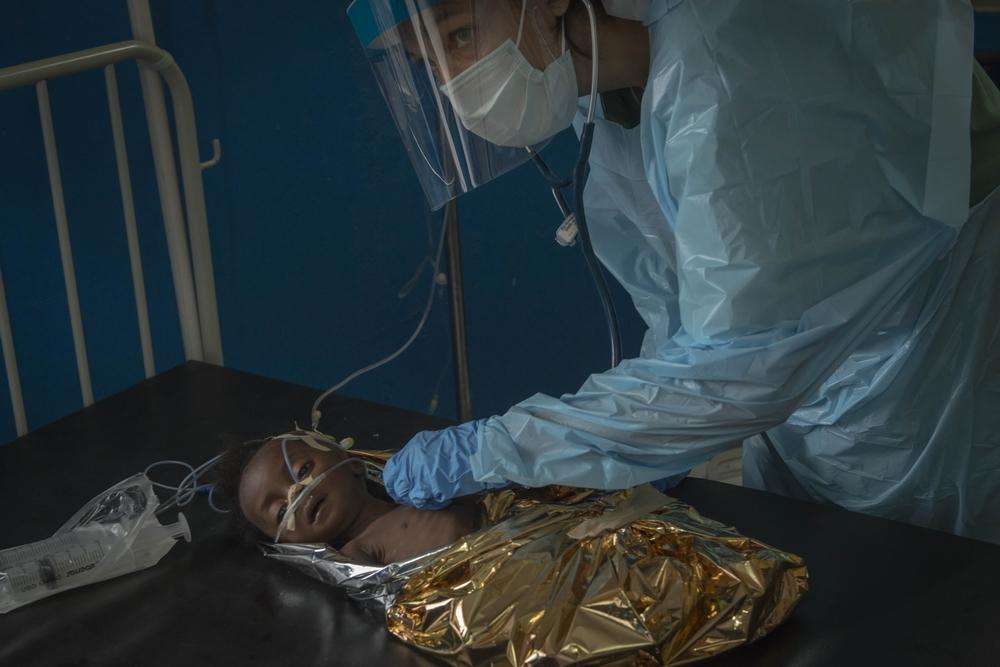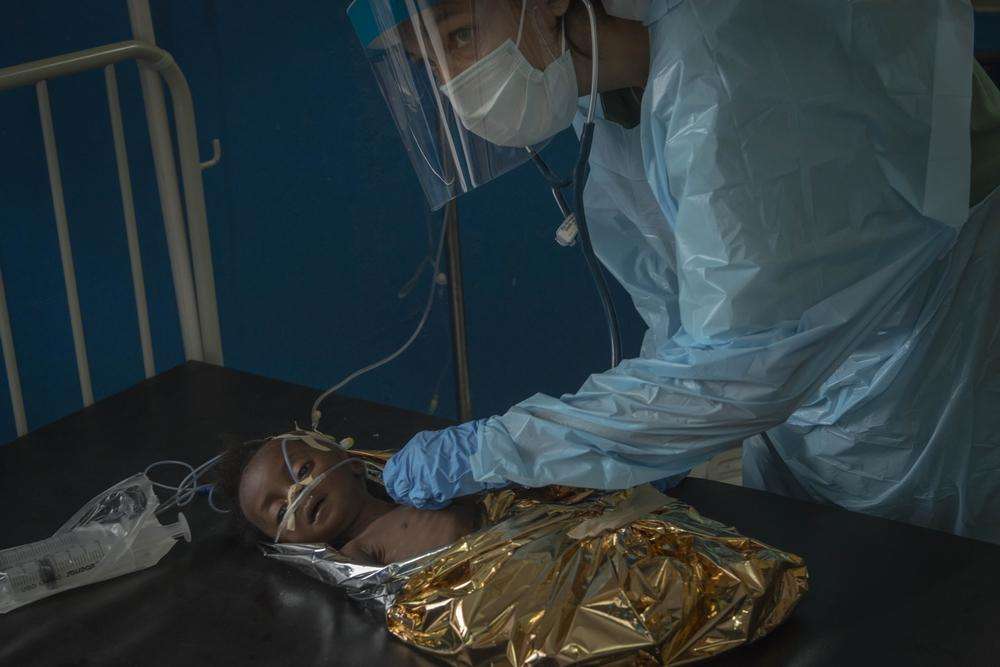On March 20, a new case of Ebola was confirmed in Monrovia, Liberia, at the Ebola transit unit opened by Doctors Without Borders/Médecins Sans Frontières (MSF) at Redemption Hospital in December 2014. The patient, who died a few days later, was Liberia’s first case of Ebola in more than two weeks.
“Our first objective is to identify those who are infected with Ebola as soon as possible,” explains Dr. Hanna Majanen, MSF medical team leader in Monrovia. “Although the majority of patients referred to us don’t have Ebola, they still must be tested prior to receiving any assistance. The medical staff is understandably afraid, with 372 health care workers having contracted the virus since the outbreak started, and 179 who then passed away.”
Rapid tests for Ebola are not yet available, and waiting for results from the lab means losing precious time. “We have seen people dying simply because they could not get timely medical care,” says Philippe Le Vaillant, MSF head of mission in Liberia. “They were usually suffering from illnesses like severe malaria or typhoid. Pregnant women facing obstetrical complications also have suffered the same fate.”
Slideshow: Rebooting Public Health Services
Although there is now a sufficient number of Ebola management centers in Liberia, people still struggle to access regular public health services. Today most medical facilities have reopened, though with a level of activity lower than before the outbreak. Many patients are still reluctant to go in search of care.
After consulting with the Liberian Ministry of Health, MSF decided to open a new pediatric hospital to increase the capacity to treat non-Ebola related medical emergencies in Monrovia. This 24/7 hospital has opened with 46 beds for children under five years old with the capacity to extend to up to 100 beds. Reinforced protocols of infection prevention and control have been implemented to protect staff and patients from any potential Ebola contamination.
“A thorough triage process, additional protective equipment, more space between beds, [and] reinforced decontamination and waste management procedures have been put in place to keep staff and patients safe,” says Dr. Myriam Deguillen, MSF hospital director. “It’s essential to restore the confidence in the medical system for health professionals and patients. Their safety is our main concern.”
In parallel, MSF has been assisting James David Junior (JDJ) Memorial Hospital in Paynesville in upgrading the free pediatric and maternal services to standards that now take Ebola into account. Many admissions are for newborns whose mothers had to deliver at home.
Interview: In Liberia, Months Without Vaccinations has Put Children at Risk
MSF has also supported 23 health clinics in Montserrado and Grand Cape Mount counties to implement safer practices. Members of the community often joined the training. “I need to be reassured before sending my children to the health center when they are sick, instead of buying pills from the drug store," says Morris Gibson at the T.K.G clinic in Clara Town, a suburb of Monrovia. "I realize now that the risk of Ebola is taken seriously here."
"Ebola has done so much damage in Liberia, Guinea, and Sierra Leone because of weak health systems," adds Philippe Le Vaillant. "Significant improvements, especially in terms of infection control and epidemiological surveillance, are urgently needed to reach and maintain higher quality standards."
"The virus has taught us all a lesson in the hardest way," recounts Beatrice Jlaka, nurse supervisor in the intensive care unit at JDJ hospital. "Many of our colleagues have died fighting the disease without proper training or equipment. To honor them, we must always be careful. I am no longer afraid to work; I feel ready."
The Liberian Ministry of Health will take over the ELWA 3 Ebola management center, opened in Monrovia by MSF in August 2014, at the end of March. A transit unit for suspected Ebola patients at Redemption Hospital has been running since November 2014. MSF’s Ebola management center in Foya was closed in December after Lofa County was officially declared Ebola-free. Since the beginning of the epidemic, 670 patients have survived Ebola within MSF’s facilities in Liberia.
MSF rapid response teams were recently deployed in Grand Bassa, Grand Cape Mount, and Margibi counties to help health authorities responding to local Ebola outbreaks.
In October, MSF teams distributed antimalarial preventive treatment in the western part of Liberia’s capital city, targeting approximately 600,000 people.





